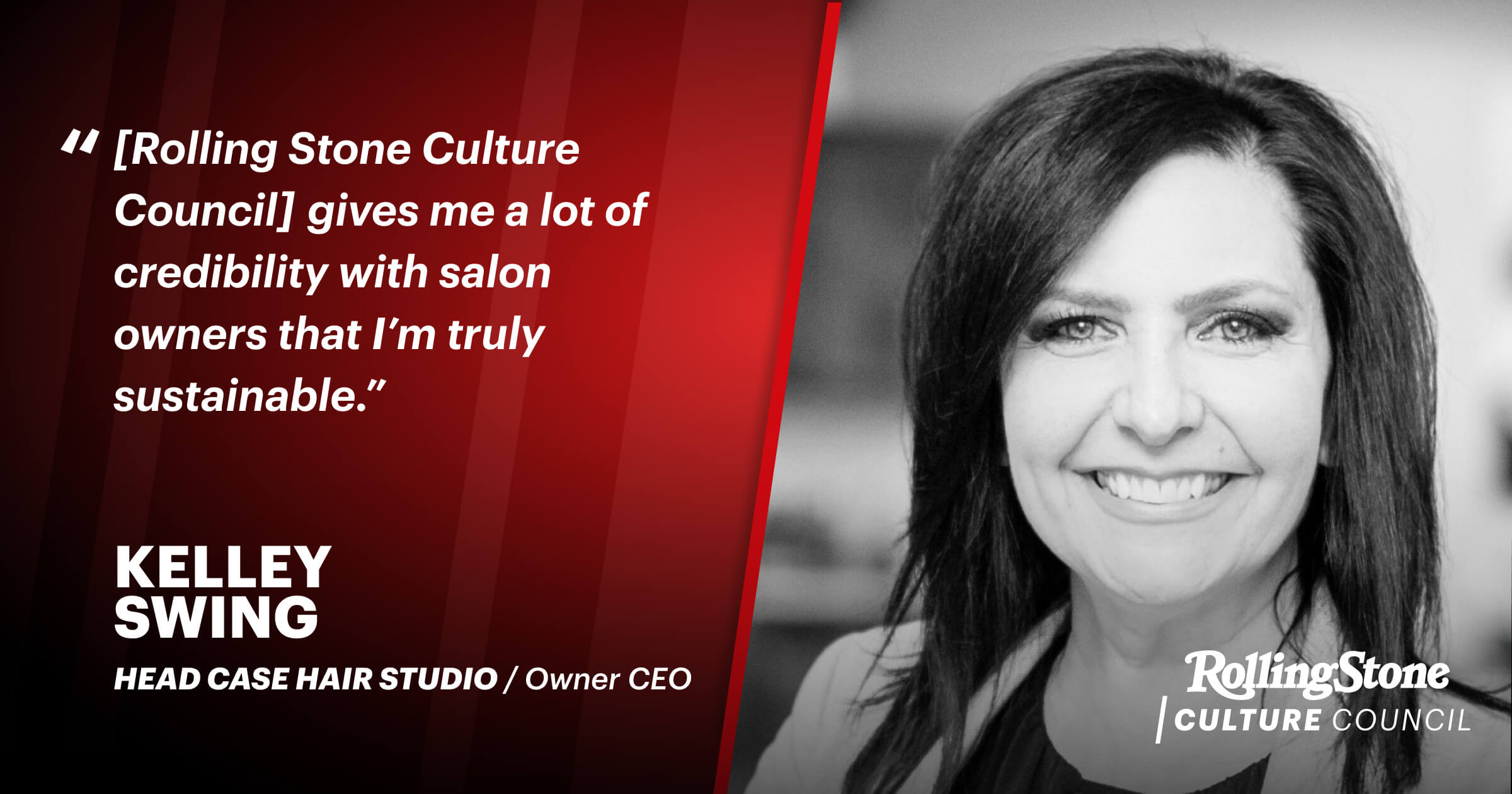
Kelley Swing had spent several years in corporate jobs until a request from a friend changed her trajectory for good: would she be willing to help her friend manage and market a new hair salon? Swing was game to try something new, so she dove into the beauty industry and hasn’t looked back. Now, she’s the founder and owner of Head Case Hair Studio, where she’s determined to shake up the industry as an evangelist for organic and sustainable beauty products and practices. And she’s doing it in Texas, where she’s faced a significant amount of skepticism.
But Swing was a skeptic once, too, until she had what she calls “an intervention from the universe.” She was experiencing health issues, such as chronic sinusitis, but until she had a conversation with a salon operator who used organic hair color, she didn’t connect her troubles with her job. “I had been in a salon with 25 stylists, inhaling fumes all day long,” she says. The more she researched her industry and the ingredients used in hair color, the more horrified she became. “I went on a long journey and also began discovering what’s happening to the planet because of these salons, because there’s one on every corner and all that ammonia is going into the water system,” she says. “And then there was animal testing. I felt I needed to share information with other people.”
At around the same time, Swing’s daughter, a stylist, told her that the salon she worked for was being sold. She asked her mother if she would ever consider buying a salon.”I said, ‘we’re not going to buy that one. We’re going to open an organic salon,’” Swing recalls. “The universe was screaming at me.”
“I have absolutely loved [Rolling Stone Culture Council] and it’s been amazing.”
The universe, however, was not as cooperative as she had hoped. Swing lined up stylists from her network, created a business plan, and applied for an SBA loan. With assurances from her lending officer that a loan was forthcoming, she signed a lease. And then, no loan, no explanation. “So a friend of mine helped me out and we got a bunch of credit cards and we opened the salon literally on credit cards,” Swing says. “Everybody was telling me I was crazy.”
It wasn’t just the financing, it was also the market. Few customers had heard of organic hair color and if they had, the preconception was that it wasn’t as reliable as its more traditional counterpart. In fact, Swing had a tough time finding a product that would produce consistent results. Then she stumbled upon a Danish brand called Natulique, ordered a small amount of the color, and was impressed with the results.
Today, Swing has three businesses: the salon she launched with her daughter, a Natulique distributorship for Texas, and a training company that helps other salon owners grow their businesses as sustainable companies. Her goal: to educate as many salon owners as possible on the negative effects of harsh chemicals on the body and the environment, and to give them the tools to transform their businesses. “But if we all come together and I help you succeed, and you help me, then we become a unified front, and we become an industry that people want to be in,” Swing says. Her own business is growing, she says, and got a boost from a recent HBO documentary called Not So Pretty, a beauty industry expose.
Swing says Rolling Stone Culture Council “gives me a lot of credibility with salon owners that I’m truly sustainable. I have absolutely loved it and it’s been amazing.” She has contributed to several Expert Panels but her first by-line article, Sustainable Beauty: Why I Believe Green is the New Black was a big hit with salon owners, clients, and with the company whose products she distributes. “I was so proud of myself,” she says. “And my team thought it was the greatest thing in the world.”
